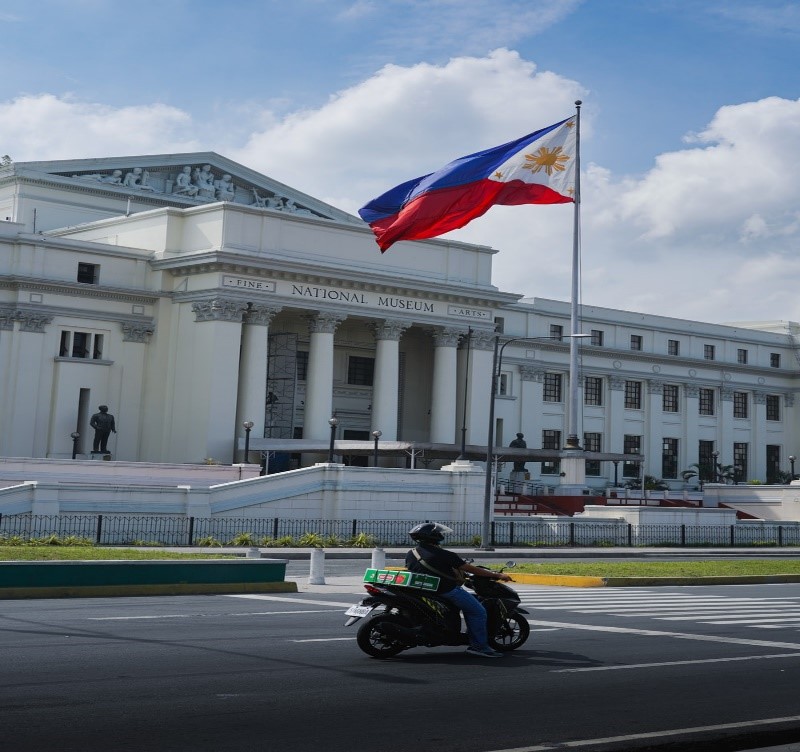
Published — June 30, 2022
The following post does not create a lawyer-client relationship between Alburo Alburo and Associates Law Offices (or any of its lawyers) and the reader. It is still best for you to engage the services of your own lawyer to address your legal concerns, if any.
Also, the matters contained in the following were written in accordance with the law, rules, and jurisprudence prevailing at the time of writing and posting, and do not include any future developments on the subject matter under discussion.
After reading “When does the term of office of a newly-elected President of the Philippines begin?”, read also “In case of disqualification of the president, who shall take over his office?”
-
The President of the Republic of the Philippines shall be elected by direct vote of the people for a term of six (6) years.
-
Such term of office shall begin at noon on the thirtieth (30th) day of June next following the day of the election.
-
It shall end at noon of the same date, six years thereafter.
The law says:
Section 4 par. 1 of Article VII of the 1987 Philippine Constitution states that:
“Section 4. The President and the Vice-President shall be elected by direct vote of the people for a term of six years which shall begin at noon on the thirtieth day of June next following the day of the election and shall end at noon of the same date, six years thereafter. xxx”
Section 5 of the same article further provides that:
“Section 5. Before they enter on the execution of their office, the President, the Vice-President, or the Acting President shall take the following oath or affirmation:
“I do solemnly swear (or affirm) that I will faithfully and conscientiously fulfill my duties as President (or Vice-President or Acting President) of the Philippines, preserve and defend its Constitution, execute its laws, do justice to every man, and consecrate myself to the service of the Nation. So help me God.” (In case of affirmation, last sentence will be omitted.)”
What is the significance of an oath of office?
An oath is an outward pledge made under an immediate sense of responsibility to God. (Bouvier’s Law Dictionary)
The oath is not a source of substantive power but s merely intended to deepen the sense of responsibility of the President and ensure a more conscientious discharge of his office. (Cruz & Cruz, Philippine Political Law, 2014, p. 355.)
How is an oath different from an affirmation?
An affirmation is a solemn declaration in place of an oath, if the President, Vice President or Acting President does not believe in God. (De Leon, Textbook on the Philippine Constitution, 2014, p. 325.)
Section 5 of Article VII of the 1987 Constitution provides that in case of an affirmation, the last sentence of the oath will be omitted, to wit:
“Section 5. Before they enter on the execution of their office, the President, the Vice-President, or the Acting President shall take the following oath or affirmation:
“I do solemnly swear (or affirm) that I will faithfully and conscientiously fulfill my duties as President (or Vice-President or Acting President) of the Philippines, preserve and defend its Constitution, execute its laws, do justice to every man, and consecrate myself to the service of the Nation. So help me God.” (In case of affirmation, last sentence will be omitted.)” (Emphasis supplied.)
May the President be eligible to run for re-election?
No, the President shall not be eligible for any re-election. Section 4, par. 1 of Article VII of the 1987 Philippine Constitution provides that:
Section 4. The President and the Vice-President shall be elected by direct vote of the people for a term of six years which shall begin at noon on the thirtieth day of June next following the day of the election and shall end at noon of the same date, six years thereafter. The President shall not be eligible for any re-election. No person who has succeeded as President and has served as such for more than four years shall be qualified for election to the same office at any time. (Emphasis supplied.)
Alburo Alburo and Associates Law Offices specializes in business law and labor law consulting. For inquiries, you may reach us at info@alburolaw.com, or dial us at (02)7745-4391/0917-5772207.
[email-subscribers-form id=”4″]


